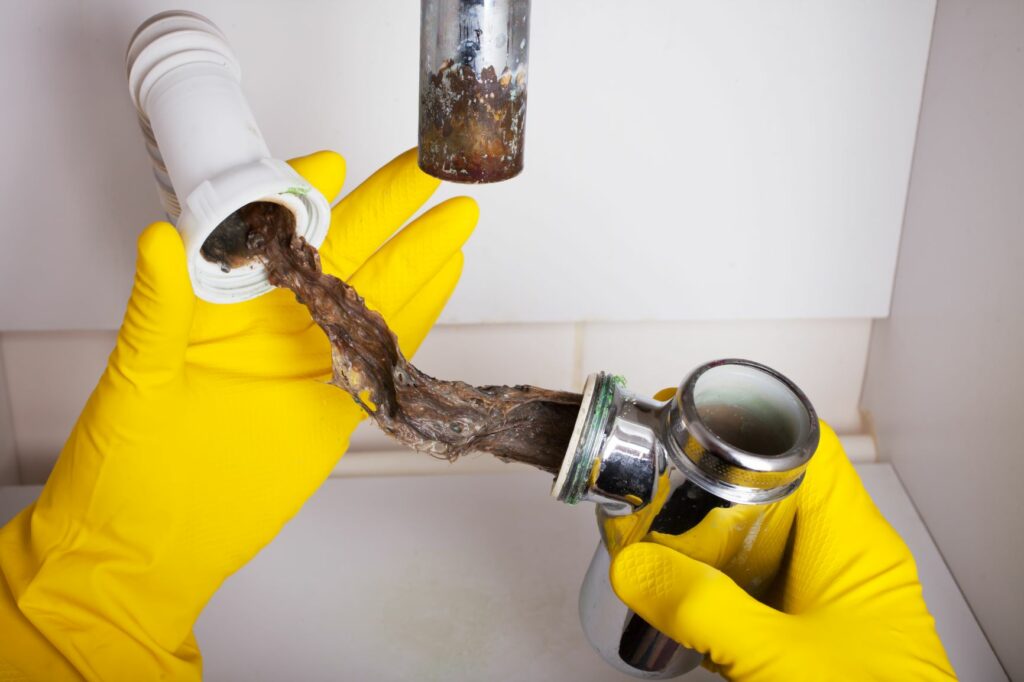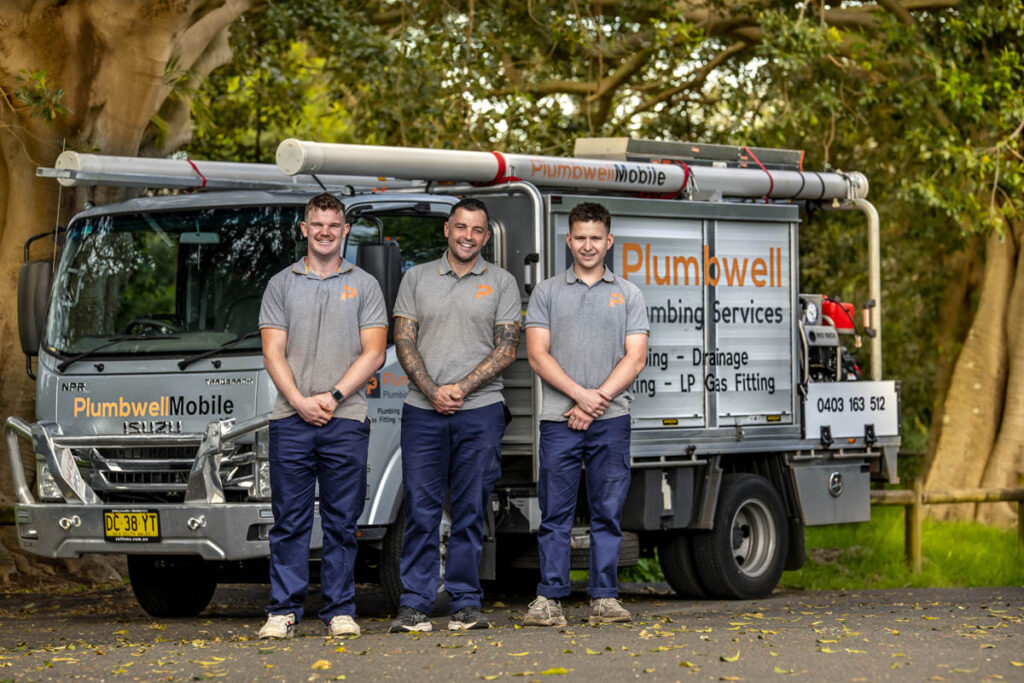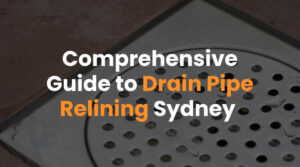Maintaining and cleaning drains properly is vital to promoting water flow and preventing blockages. Our comprehensive guide offers valuable advice, techniques and equipment to effectively maintain and clean your drains. Follow our drain maintenance guide to avoid expensive plumbing problems and keep your drains in top-notch condition.
Causes of Common Drainage Issues
Proactive measures can prevent drainage problems caused by a range of factors. Here are the main reasons for such issues. Gain insight to protect your property.
Grease and fat build-up
Drain clogs are a common problem caused by the build-up of grease and fat in pipes. These substances harden and attach themselves to the pipes, reducing the water flow. To prevent clogs, avoid pouring greasy substances down the drain and dispose of them properly. Consider using a drain strainer to catch any remaining food particles or grease. Say goodbye to clogs for good with these simple drain maintenance tips.
Hair and soap scum
Prevent bathroom drain clogs by installing a strainer or cover in your shower or bathtub drain. Clean the strainer regularly to keep it working effectively. If you notice slow drainage, dissolve hair and soap scum with a drain snake or a baking soda and vinegar mixture. Keep your drains flowing smoothly and hassle-free.
Foreign objects
Prevent severe blockages in your plumbing by being mindful of what you dispose of down the drain. Avoid flushing items like wipes, sanitary products, cotton balls or paper towels down the toilet. Additionally, keep small objects such as jewelry or children’s toys away from kitchen sink drain to avoid accidental disposal. Don’t let accidental or intentional dumping of foreign objects down the drain lead to plumbing issues.
Tree roots and plant growth
Trees seeking moisture can disrupt underground pipes, leading to blockages and damage. To avoid root intrusion, inspect any drain lines located near trees or shrubs on a regular basis. Enlisting the help of a professional plumber may be wise, as they can provide root barrier solutions and repairs to prevent drainage issues caused by roots. Take action now to avoid costly and complicate problems down the line.

Preventative Drain Maintenance and Clog Removal Tips
Effective drain maintenance is vital for maintaining your plumbing system’s optimal condition. With these practical tips, you can proactively prevent drain clogs and go a long way of hassle-free drainage:
Regular drain inspections
It’s crucial to conduct regular drain inspections to prevent small problems from turning into expensive repair bills. To ensure a thorough inspection, hire a professional plumber with expertise in drain maintenance. They’ll utilize wide range of plumbing technologies such as CCTV drain to quickly and accurately identify any issues in your drain pipes and drains. Invest in regular drain maintenance today to save yourself from future headaches and expenses.
Using drain covers and strainers
To keep your pipes unclogged, utilize drain covers and strainers, which are economical tools to trap solids, debris, and other foreign objects from entering your drains. It’s paramount to clean them frequently to ensure their optimal performance.
Proper disposal of waste
Inadequate disposal of waste is a prevalent reason for drains an pipes blockages. To prevent this, refrain from flushing or wash substances such as grease, oil, food scraps, and chemicals down drains. Instead, dispose of them by using appropriate containers or recycling centres. Make sure to educate all members of your household or business about the significance of responsible waste disposal techniques to steer clear of drain problems.
Flushing your drains regularly
Maintain a clog-free plumbing system by regularly flushing your drains with hot water. Clear away accumulated debris and residue by pouring a kettle of boiling water down the drain once a week. For a deeper clean, use a mixture of half a cup of baking soda and vinegar. Allow the mixture to sit in the drain for a few minutes before flushing with hot water.
Implementing these simple preventative maintenance tips will help prolong the lifespan of your plumbing system, prevent drain clogs and ultimately, avoid costly repairs.

Essential Drain Cleaning & Pipe Unblocking Tools
To maintain and keep your drains clear, it’s crucial to have the right tools at your disposal. Check out these essential tools for drain maintenance and cleaning.
Drain snake (electric eel)
The electric eel, also known as a drain snake, is a highly versatile tool that effectively clears clogs within deep drainpipes. It’s comprised of a long, flexible cable fitted with a coiled auger on one end. Simply insert the drain snake into the pipe and rotate it to quickly eliminate stubborn blockages.
Plunger
Clear minor clogs with ease using a simple and efficient tool – the plunger. This powerful device generates suction and pressure to remove blockages and restore the optimal flow. For best results, opt for a plunger with a flat-bottomed rubber cup capable of creating a tight seal around the drain opening.
Hydro jetting equipment
Hydro jetting cleaning will help in clearing tough blockages and eliminating buildup within pipes, achieved through the use of high-pressure water. This technique utilizes specialized equipment to deliver a forceful stream of water, effectively flushing out debris and restoring optimal drainage.
Drain cleaning chemicals
Effectively dissolve clogs caused by organic matter, grease, and stubborn substances with drain cleaning chemicals. But use them carefully and follow instructions closely to prevent damage to your pipes. Opt for drain cleaning products specially designed to protect your pipes.
DIY Drain Cleaning Methods and Best Way to Keep Your Clogged Drains Clean
Proper maintenance of your drains is vital to avoid clogs and keep your plumbing system functioning smoothly. Implementing these DIY drain cleaning techniques not only ensures efficient drainage but also helps many households from expensive plumbing services.
Baking soda and vinegar method
Discover an eco-friendly solution for cleaning your drains with the baking soda and vinegar method. Begin by pouring a half cup of baking soda down the drain, then add a half cup of vinegar. Watch the mixture fizz and work its way through the pipes for 30 minutes. Finish off by flushing the drain with hot water to remove any buildup. Implementing this easy technique will help prevent clogs and increase the longevity of your pipes.
Plunger technique
The plunger is a highly adaptable tool that efficiently clears clogged drains. To use it, fill the sink, shower, or toilet bowl with enough water to cover the suction cup. Position the plunger over the drain opening and firmly push and pull to create suction. This movement successfully dislodges blockages and restores healthy water flow. Repeat the process if necessary. Finally, flush the drain with water to remove any remaining debris.
Using a drain snake
To tackle tough clogs, a drain snake or auger can work wonders. This flexible tool reaches deep into pipes, breaking up and removing blockages. Simply insert the snake into the drain and rotate it clockwise while pushing it forward to dislodge the clog and allow for free-flowing water. Afterwards, remove the snake and flush the drain with water to ensure complete clearance of the clog.
Chemical drain cleaners
Chemical drain cleaners are a viable solution for stubborn blockages, but caution is key when using them. Their potent chemicals effectively dissolve organic matter and remove blockages, but following the instructions carefully and using proper safety measures, like gloves and eye protection, is crucial. Remember, excessive usage can cause damage to pipes, so sparing use and trying alternative methods is advised.

When to Call a Professional
Regular maintenance can help prevent drain clogs, but sometimes it’s best to call in the experts. Here are some signs that indicate a serious drain issue requiring professional help:
Signs of a serious drain issue
Persistent Drain Blockages: If you find yourself constantly dealing with clogged drains despite your best efforts, it may be a sign of a more serious issue lurking within your plumbing system. Don’t wait until it becomes a major problem – seek professional plumbing help today.
Slow Draining: When your sink, shower or bathtub takes too long to drain or water pools around them, there may be a problematic blockage in the pipes.
Foul Odours: Unpleasant odours emanating from your drainage system may be a sign of accumulation of debris or organic matter in your pipes that requires the intervention of a professional. Don’t ignore the warning signs – act now to avoid greater problems down the line.
Gurgling Sounds: Is your plumbing making strange gurgling sounds? Don’t ignore them! These noises usually indicate a blockage or improper venting in your system. To prevent further problems and ensure efficient drainage, it’s best to have a professional plumber investigate and fix the issue. Contact us today for expert assistance with your plumbing needs.
Benefits of hiring a professional
Expertise and Experience: Professional plumbers possess the required knowledge and practice to detect and tackle intricate drain problems with efficiency.
Advanced Drain Cleaning: Our team of professionals use specialized tools and modern techniques to tackle the toughest clogs, leaving you with long-lasting results.
Save Time and Money with a Professional Plumber: Get ahead of costly damages and recurring drain issues by hiring an experienced plumber. Enjoy long-term benefits for your wallet and schedule.
Safety: Professional plumbers prioritize safety by adhering to industry standards and regulations, guaranteeing that your plumbing system is handled with utmost care and efficiency.
Common Mistakes to Prevent Drain Clogs
To safeguard against expensive plumbing problems, it’s crucial to eliminate common drain maintenance and cleaning errors. With a little preparation, you can keep your drains in excellent condition. Below are three mistakes you should steer clear of.
Overusing chemical drain cleaners
Homeowners often make the mistake of relying on chemical drain cleaners to quickly fix minor clogs. However, prolonged use of these products can corrode and weaken pipe material, leading to costly pipe damage. To avoid this, consider using natural alternatives like baking soda and vinegar. These eco-friendly options effectively break down debris and clear clogs without harming your pipes.
Ignoring warning signs
Overlooking red flags of a potential clog can lead to big issues down the line. Toilet backups, slow-draining sinks, strange gurgling sounds, and foul odors are all warning signs that shouldn’t be neglected. Don’t wait until the problem gets worse – act quickly to avoid costly damages. Proper maintenance and frequent check-ups can help prevent the problem from ever happening.
Using inappropriate tools
It’s a common mishap to use improper tools when unclogging drains, and this can worsen the issue and lead to costly damage. It’s crucial to use the right tools specifically designed for drain cleaning. Avoid using makeshift tools like wire hangers, as they can potentially scratch or break your pipes. Instead, invest in proper tools like plungers, drain snakes, or augers. These tools are effective in resolving minor clogs and blockages without causing any harm. However, for more complex issues, it’s best to rely on professional plumbers who have the expertise and proper equipment to ensure that the job is done properly.
Frequently Asked Questions
How often should I clean my drains?
Maintaining your drains is crucial for preventing clogs and keeping your drainage system functioning at its best. Experts recommend considerable cleaning your drains at least once every three months, although households with high usage or frequent clogging may require more frequent maintenance. By prioritizing regular drain cleaning, you can avoid expensive plumbing problems and protect the lifespan of your pipes.
Are chemical drain cleaners safe?
Chemical drain cleaners may do the job, but they’re not without their downsides. The corrosive ingredients can harm your pipes, and mishandling can pose serious health risks. Instead, consider natural remedies like baking soda and vinegar or seek the services of a qualified plumber for safe and efficient drain cleaning. With their specialised equipment and know-how, they can resolve clogs without putting your plumbing at risk.
What can I do to prevent clogs?
To keep your drains free from clogs, follow these essential tips that will help you maintain healthy drains.
1. Utilize Drain Strainers: Prevent clogs in sinks, showers, and tubs by installing drain strainers to trap hair, food particles, and other debris.
2. It is advisable to refrain from pouring grease down the drain, as it tends to solidify and create tough clogs. It is recommended to dispose of it in a securely sealed container instead.
3. Regularly flush your drains with hot water to prevent blockages caused by the accumulation of grease. Melting away the grease is key to maintaining a clear and efficient drainage system in your home.
4. Ensure proper toilet use: Use the toilet for only toilet paper and human waste. Trash wet wipes, cotton balls, and paper towels. Do not flush non-flushable items.
5. Prevent Blockages: Keep Drain Stoppers Clean. Hair and soap scum can accumulate in drain stoppers, causing stubborn clogs. Avoid this problem by regularly cleaning the stoppers to keep them free of debris.
What are the potential risks of using a drain snake without proper experience?
Improper use of a drain snake can result in unintended aftermaths. Trust a professional for your plumbing needs.
Are chemical drain cleaners safe for my pipes and septic system?
Protecting your drains from clogs is important, but using chemical drain cleaners may do more harm than good. These cleaners contain harsh chemicals that can corrode and damage pipes, especially older or weaker ones. This can lead to leaks or even pipe bursts over time. Not only that, if you rely on a septic system, these chemicals can upset the delicate balance of bacteria necessary for proper waste breakdown. Take a safer approach to drain maintenance to avoid expensive repairs and maintain a healthy septic system.








